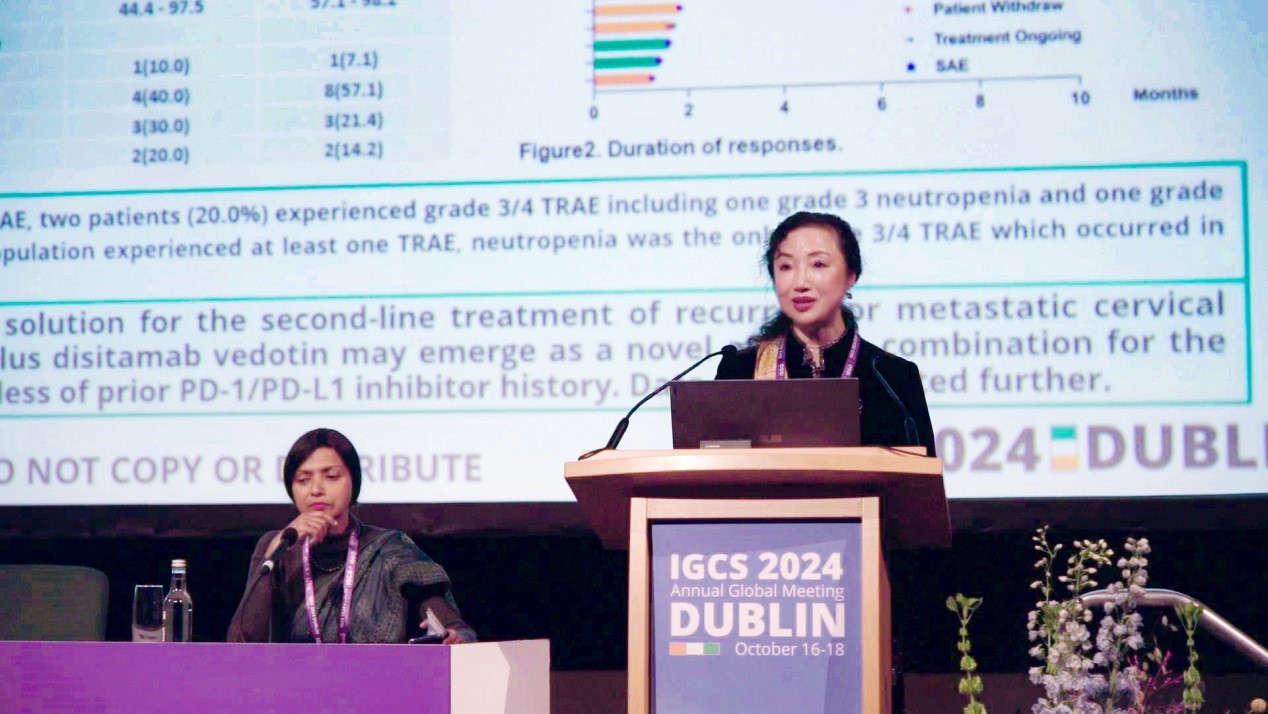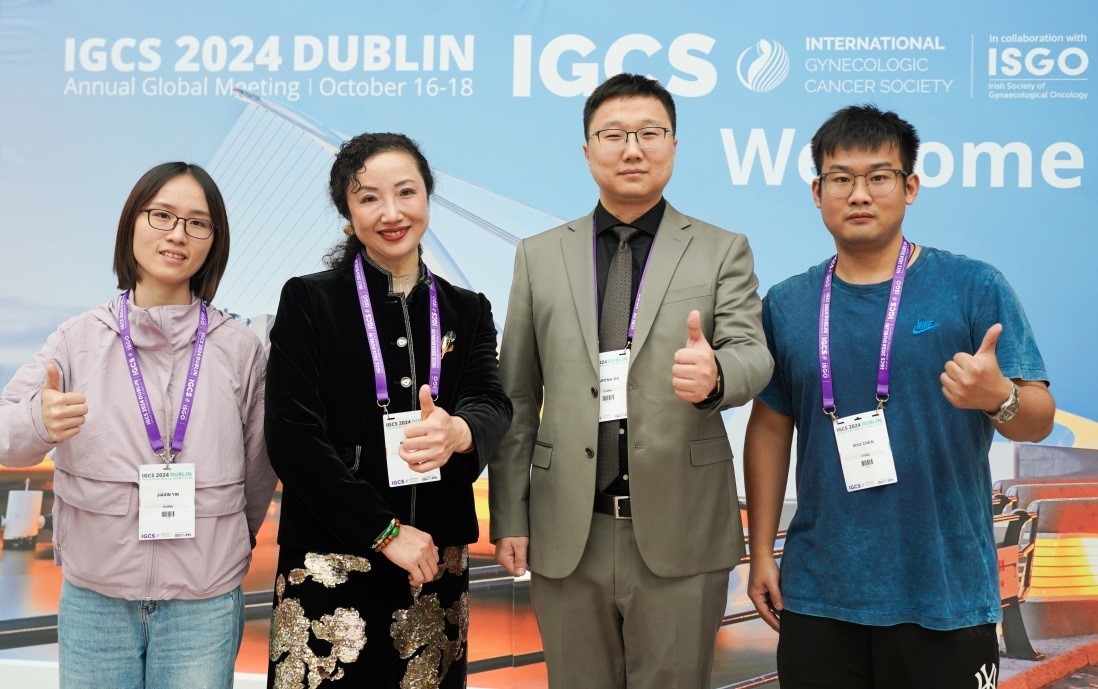
On 16th October, 2024 (Irish Standard Time), the International Gynecological Cancer Society (IGCS) 2024 Annual Global Meeting was held in Dublin, Ireland. As one of the three high-level academic conferences in the international gynecological cancer community, this meeting attracted top scholars to share insights and latest research achievements in treatment of gynecological cancers.
At the meeting, the result of a phase 2 clinical study on Disitamab Vedotin combined with Cadonilimab to treat recurrent or metastatic cervical cancer (AK001) was published for the first time, drawing much attention.

Disitamab Vedotin is an antibody-drug conjugate initially developed by RemeGen Co., Ltd., which delivers its cytotoxic payload to tumor cells through HER2 targeted antibody, precisely killing tumor cells through intracellular release of the cytotoxic drug. Cadonilimab, a PD-1/CTLA-4 targeted bispecific antibody, can block the two important immunosuppressive pathways simultaneously, enhancing the immune response to tumor cells.
AK001, led by Professor Min Zheng from Sun Yat-Sen University Cancer Center, is the first clinical study on HER2-directed ADC combined with bispecific antibody for cervical cancer globally. On the afternoon of 16th, at the cervical cancer session of IGCS meeting, Professor Zheng gave an in-depth oral presentation to interpret this study. It is a prospective, double-cohort, multicenter and open-label phase 2 study with a plan to enroll 74 recurrent or metastatic cervical cancer patients who have received one to three lines of chemotherapies. Two cohorts were established: cohort 1 included patients with HER2 expression (IHC 1+, 2+ or 3+) who received Disitamab Vedotin combined with Cadonilimab; cohort 2 included HER2-negative (IHC-) patients who received Cadonilimab combined with Abraxane. According to the result, in cohort 1, among patients receiving Disitamab Vedotin combined with Cadonilimab, the objective response rate (ORR) reached 50%. As for safety, no death caused by adverse events (AEs) was reported, demonstrating manageable tolerability of the regimen.
It is noteworthy that, in cohort 1, 50% of patients had previously received PD-1/PD-L1inhibitor, a proportion highly consistent with that in real world. According to Professor Zheng, AK001 has high clinical value for patients previously treated with immune checkpoint inhibitors. This regimen utilizes the synergistic effect of ADC and immune checkpoint inhibitor and acts on tumor cells and tumor microenvironment simultaneously, enhancing the attack from immune system on cancer cells. Disitamab Vedotin not only kills HER2-expressing tumor cells selectively but also enhance the immune response of Cadonilimab, contributing to an effective treatment regimen and better treatment effect.
Professor Zheng stated that Disitamab Vedotin combined with Cadonilimab showed superior efficacy in patients with HER2-expressing cervical cancer, although these patients usually have poor prognosis. This suggests greater emphasis should be placed on the status of molecule markers in managing cervical cancer for the purpose of using more selective therapies to improve the survival rate.

The results of AK001 have ignited heated discussion among experts and scholars at the meeting. They believe the study would have a far-reaching impact on the application of ADC drugs in treatment of gynecological cancer. Professor Haifeng Gu, from Sun Yat-Sen University Cancer Center, said, “The results showed that immunotherapy combined with ADC emerged as a new treatment option for patients who have previously received immune checkpoint inhibitor, enabling physicians to act more flexibly in determining treatment strategy.”
With the development of ADC technology, there’ll be more innovative treatment regimens, providing individualized and precision treatment regimen for more patients affected by gynecological cancer and also leading the clinical studies and drug development in the future.
